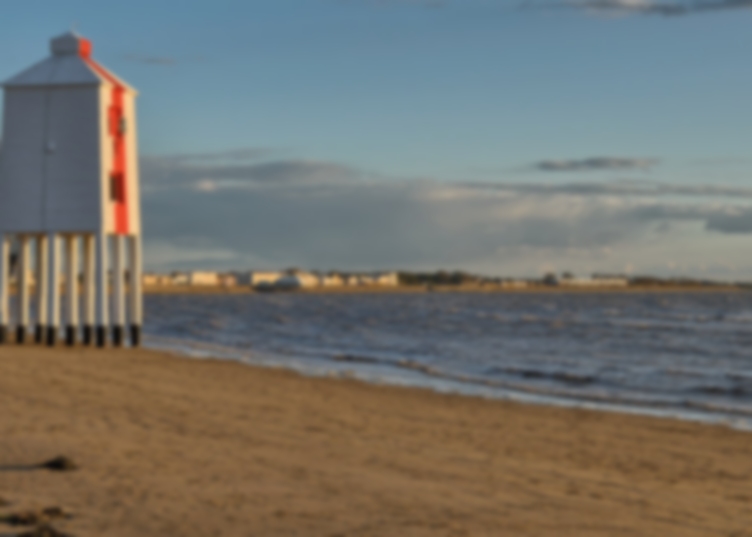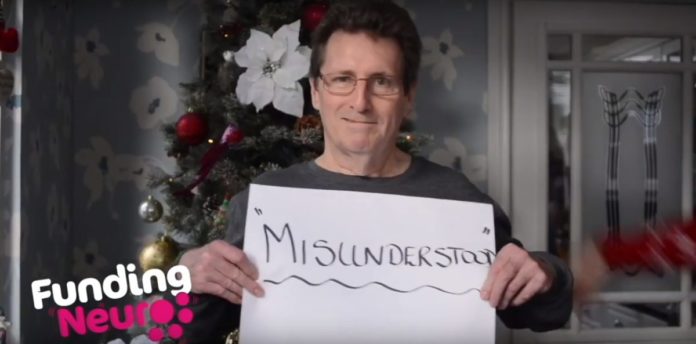Burnham-On-Sea Parkinson’s disease sufferer John Thatcher and 41 other people who have taken part in a groundbreaking clinical trial to find a cure have recorded a Christmas single.
The group were featured in BBC2’s The Parkinson’s Drug Trial: A Miracle Cure? earlier this year, as featured here. It followed 42 people with Parkinson’s who took part in a groundbreaking medical trial in the hope of helping millions of Parkinson’s sufferers across the world.
Now, the group has unveiled a new Christmas single called ‘Shine’, which is available to download here, that aims to raise both awareness of the disease and also funds for Parkinsons Research.
Speaking to Burnham-On-Sea.com, John Thatcher said: “Please buy a copy and share this message to help us reach number one and raise funds to run a further trial of GDNF, the wonder drug for Parkinson’s disease.”
“Having suffered from ‘drop foot’ in my left leg for about 7 years – during which time I hadbeen offered, and refused, all sorts of surgical treatments to overcome it, I was diagnosed with Parkinson’s in October 2009 at age 56.”
“Parkinson’s disease is an incurable, chronic progressive, dehabilitating condition. It is a common misconception that it is all about old people who shake – it affects people of all ages and ‘tremor’ is a very visible but minor symptom! Stiffness, slowness and freezing are less visible but very debilitating symptoms!”
“In 2012, I was introduced to a lady who was an avid fund raiser for a new charity, the Cure Parkinson’s Trust, and she invited me to a fund-raising event and talk in Bristol. The speakers were Professor Stephen Gill and a long time Pd sufferer and co-founder of Cure Parkinson’s Trust the, now, late Tom Isaacs. Unlike Parkinson’s UK, which also provides support, information and palliative care for Pd sufferers, CPT exists solely for the purpose of finding a cure for PD.”
“Stephen Gill talked about his research work and showed a short documentary based on his 2001 experiment with GDNF (A naturally occurring protein that can be synthesised and which he believed would have a beneficial effect on Parkinson’s sufferers if it was fed into certain areas of the brain. Because of the size of the GDNF molecules, they will not pass through the natural blood-brain filter. In order to reach the brain it has to be infused directly into the brain.”

“This, also, allows the substance to be targeted to the desired area.) Six volunteers, all Pd sufferers, had taken part in a ‘clinical trial’ where they had brain surgery to allow the GDNF to be periodically infused into their brains. The results, comparing their physical abilities before and after treatment over several months, were amazing. However, the thing that really struck me was that one of the six was only having GDNF infused into one side of his brain and, unfortunately, died of natural causes during the clinical trial. His brain was sectioned and examined and it was found that the side into which the GDNF had been infused had been restored to a normal (as opposed to Parkinson’s.) condition.”
“To cut a long story short, I was accepted onto a new clinical trial and, in November 2013, underwent an eight and a half hour operation to insert 4 catheters in my brain and a feed system terminating at an external Titanium ‘infusion port’ located behind my left ear.”
“I was the eighth of 42 participants – the first six formed the ‘health and safety check’ group which ensured that the rest of us came to no harm – and after a delay, during which I had corrective surgery to my infusion port because it became loose, I began to receive the first of 18 monthly infusions in late 2014. Fifty per cent of us would receive GDNF for the first 9 infusions and fifty per cent a placebo (Nobody would know which until the trial was complete.) Then we all received GDNF for the second 9 infusions. Each infusion took 3 or 4 hours.”
“At two monthly intervals, prior to receiving an infusion, we had to attend Southmead Hospital in an ‘off meds’ condition. Having taken no regular PD medication for 24 hours, I arrived in a taxi, staggered to the front door of the hospital building and had to be transported by wheelchair approximately 250 yards to the photographic suite where we were tested and filmed and be subjected to tests before taking medication and being re-subjected to the same tests.”
“I noticed no real change in my condition and was convinced that I was receiving the placebo for the first 9 months until 3 months into the second set of 9 infusions when I accidentally went four days without any medication. Remarkably, I was able to walk from the taxi to the photographic suite.”
“The trial ended for me in December 2016, when I received my final infusion. A few months later, we had all received all of our infusions and we then had to undergo an agonising wait while the results were collated. Throughout the clinical trial, we had been discouraged from talking to each other in an attempt to minimise any ‘placebo effect’. In the months following the trial, we were still not allowed to freely interact with the other trial participants. However, we had all observed others’ progress on occasions and had a good feel for the general level of improvement.”
“During the trial, the first six participants had been followed by a film crew who were making a documentary for BBC2 which was eventually aired in two parts in February and March 2019. The reason that it took so long before the documentary was shown, and the embargo was lifted on any participants talking about it, was that there was an agreement in place that nothing would be said before the results of the trial had been published in a medical journal. Unfortunately, because the trial was a technical ‘failure’ and did not achieve an overall 5% improvement, this took a long time.”
“There are several reasons why the trial did not achieve an overall improvement of 5%; one was that the UPDRS measurement system, that was used to gauge improvement in patients, had more than 50% of its measures associated with ‘tremor’ – not a realistic figure and, if you have very little tremor before any treatment, you will not show an improvement on that score however good the treatment is! The fact that the treatment all but eliminated most of the symptoms of freezing and stiffness in some patients was hidden by the fact that they had no tremor to cure! A resounding success was turned into a failure!”
“So, with no hope of further ‘infusions’ of GDNF, I opted to have the Titanium Portal removed from my head because there was an on-going risk of damage. This was done in 2018. My condition has continued to deteriorate since the trial ended.”
“However, we the participants of the clinical trial, remain convinced that this treatment is viable and have worked hard to ensure further trials are carried out.”
He adds: “Please help us to raise awareness of Parkinson’s disease and raise funds for a new trial by buying a copy of our single, ‘Shine’.”











